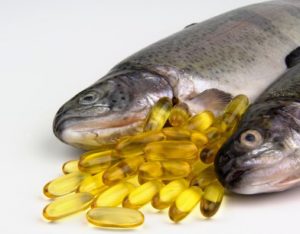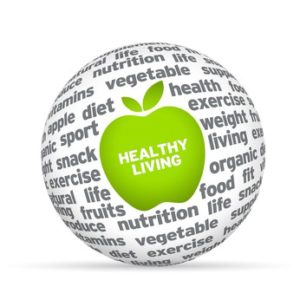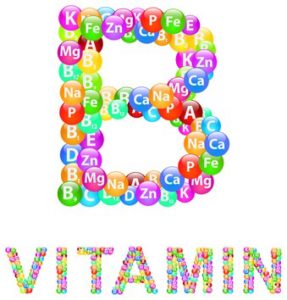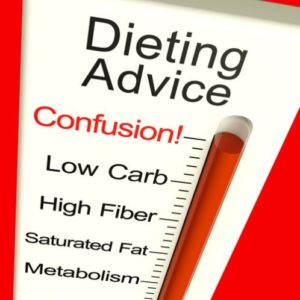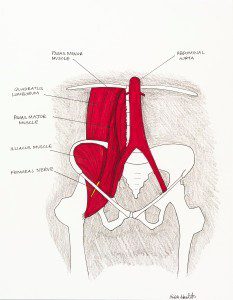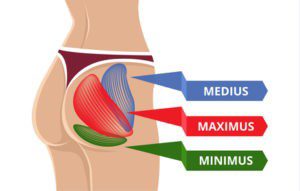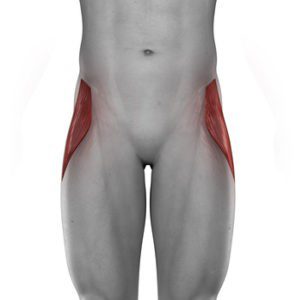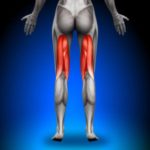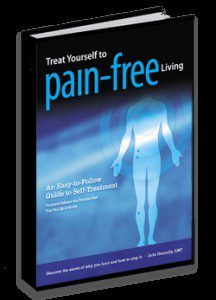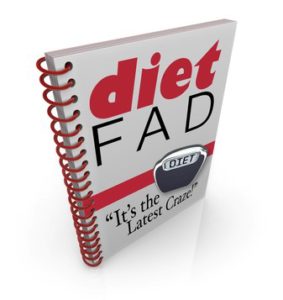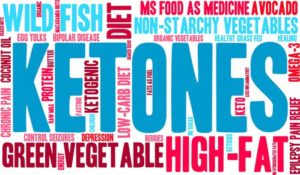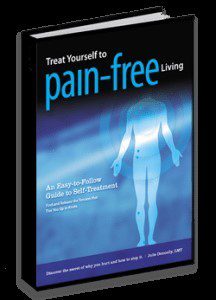Wish I Knew At 20
Author: Dr. Stephen Chaney
 I wish I knew how to live a healthy lifestyle when I was 20. But, I was a typical 20-year-old American. I ate lots of junk food. I thought an occasional tennis game was all the exercise I needed. I never really thought about what I was doing. I just did what all my friends did. If I hadn’t changed what I was doing, I might have had a short, unhealthy life.
I wish I knew how to live a healthy lifestyle when I was 20. But, I was a typical 20-year-old American. I ate lots of junk food. I thought an occasional tennis game was all the exercise I needed. I never really thought about what I was doing. I just did what all my friends did. If I hadn’t changed what I was doing, I might have had a short, unhealthy life.
Of course, I did change, and those changes made all the difference. Now I’m in my 70s, and I’m in perfect health. I have no diseases. Even the allergies I had when I was younger have gone away as I improved my diet and lifestyle. I am on no medications. I have the blood pressure of a 16-year-old.
I call this article “How to Live a Healthy Lifestyle: Wish I Knew At 20”, but this article isn’t about me. I wrote this article for all the other 20-year-olds who know as little about nutrition and health as I did at 20. I also wrote this article for all those people who haven’t changed – those people with the same diet and lifestyle they had at 20. It’s never too late to change and begin to live a healthy lifestyle.
How to Live a Healthy Lifestyle: What I Wish I Knew At 20
Here are 15 tips I would pass along to all the 20-year-olds, even those 20-year-olds in older bodies:
#1: You Are In Charge: You have a brain. You have free will. You don’t have to do what everyone else is doing. It is time to start thinking about what your health and your life will be like if you don’t change. More importantly, it is time to start thinking about what your health and your life could be like if you do make positive changes.
#2: It Matters: I can’t emphasize strongly enough how important it is to make positive changes in your diet, your exercise, and your overall lifestyle. We know all the major killer diseases (heart disease, cancer, diabetes, hypertension, etc) are affected by diet and lifestyle. However, it is much more than avoiding disease. As you age, your quality of life is dramatically affected by how much you have moved and what you have put in your mouth over your lifetime.
If you have any question about how important healthy eating can be, take time to view documentary movies like “Forks Over Knives” or “Eating You Alive.” I’m not necessarily advocating that extreme a diet, but these films will get you thinking.
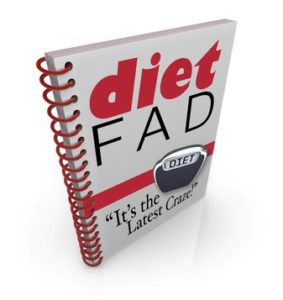 #3: Avoid the Fads: Once you have decided to adopt a healthier lifestyle, the hardest part is deciding which changes you should make. You will need to practice a lot of due diligence. There is a lot of hype and misinformation out there. There is a new fad every week. First, it’s low fat. Then it’s low carb. Then it’s no bananas before noon on Thursdays (I’m joking here, but you get the point. Some of the diets are just plain weird).
#3: Avoid the Fads: Once you have decided to adopt a healthier lifestyle, the hardest part is deciding which changes you should make. You will need to practice a lot of due diligence. There is a lot of hype and misinformation out there. There is a new fad every week. First, it’s low fat. Then it’s low carb. Then it’s no bananas before noon on Thursdays (I’m joking here, but you get the point. Some of the diets are just plain weird).
Most of those diet recommendations sound plausible. They all have their advocates who are only too happy to offer their testimonials. My advice: If it sounds too good to be true, avoid it. If they tell you the medical profession is trying to keep their diet a secret, avoid it. The consensus advice of the medical and nutrition communities may seem boring, but it is generally based on dozens of clinical studies. It is much more likely to be true than advice from your friends, your trainer, or that blogger who values controversy more than accuracy.
#4: We Are All Different: Health recommendations are usually based on dozens of clinical studies. But, here is the secret that only scientists know. Clinical studies report averages, but none of us are average. Let me give you an example. Let’s say you wanted to do a clinical study to evaluate whether a low-carb diet helps people lose weight. You might enroll several hundred people in your study. If you put them all on an identical low-carb diet for 8 weeks, some of them would lose weight. Others would gain weight. At the end of the 8 weeks, you would average all weight changes together and report the average weight loss.
For the sake of argument, let’s say the average weight loss was 6.4 pounds. That’s fine except that not a single person in the study lost exactly 6.4 pounds, and some may have even gained weight. The bottom line is that your results may be different from conventional wisdom. Your results may be different from your friend’s. You will need to find out what works best for you.
#5: You Don’t Have To Change All At Once: Some people have an iron will and can make drastic changes overnight. Most of us aren’t like that. If we try to change too many things at once, we become overwhelmed. We become discouraged. Sometimes we quit. Think of this as a marathon, not a sprint. Make “Change One” your slogan. Change one thing each week until you are where you want to be. One week it may be replacing sugary desserts with fruits. Another week it may be adding a green vegetable to your dinner plate. Over time, all those small changes will result in a totally different lifestyle.
 #6: Your Tastes Will Change: The first time you choose a low sodium food, it will taste bland. Over time you will come to enjoy the subtle flavors of the food and will come to dislike added salt. The first time you switch from whole milk to low fat milk it will taste like water. Over time you will learn to appreciate low fat milk, and whole milk will taste greasy. I could give lots more examples, but you get the point.
#6: Your Tastes Will Change: The first time you choose a low sodium food, it will taste bland. Over time you will come to enjoy the subtle flavors of the food and will come to dislike added salt. The first time you switch from whole milk to low fat milk it will taste like water. Over time you will learn to appreciate low fat milk, and whole milk will taste greasy. I could give lots more examples, but you get the point.
#7: Processed Foods, Sweets, and Sodas Will Kill You: I’m being dramatic here, but they are bad for your health. They have no place as part of a healthy diet. Replace the processed foods and sweets with whole foods. Replace the sodas with water or herbal teas.
#8: It’s What You Do Every Day That Matters: Refined grains, pastries and sweets should be only an occasional indulgence. Fruits, vegetables, and whole grains should be the mainstay of your everyday diet. Eat a plant-based diet as much as possible.
#9: Protein Is Important, Especially As We Get Older: Low fat or vegetarian protein sources should be your first choice. Chicken (with the skin removed) and fish are the healthiest meats. Nuts, beans & seeds are excellent vegetarian protein sources, especially in combination. Think of red meats as no more than an occasional indulgence.
#10: Avoid The Center Of The Supermarket: This is my only shopping advice. In general, supermarkets are arranged with real foods around the edges and the processed foods in the middle.
 #11: Choose Organic: Our planet has become so polluted that is has become impossible to completely avoid toxic chemicals in our environment. They are in our air, our water, our soil, and our homes. Our only defense is to be informed consumers and avoid them whenever possible. If the cost of organic produce is an issue for you, be selective. There is a Dirty Dozen list of fruits and vegetables that are the ones most likely to be contaminated with pesticides and herbicides.
#11: Choose Organic: Our planet has become so polluted that is has become impossible to completely avoid toxic chemicals in our environment. They are in our air, our water, our soil, and our homes. Our only defense is to be informed consumers and avoid them whenever possible. If the cost of organic produce is an issue for you, be selective. There is a Dirty Dozen list of fruits and vegetables that are the ones most likely to be contaminated with pesticides and herbicides.
#12: Get Lots Of Exercise: Most experts recommend at least 30 minutes of moderate intensity exercise 5 times per week. More is even better. For best results choose a combination of aerobic and weight bearing exercise.
#13: Control Your Weight: We are in the midst of an obesity epidemic. The problem is that 80% of us are genetically predisposed to become obese if we eat a typical American diet and follow a typical American lifestyle. The solution isn’t the fad diet du jour. The solution is to change our diet and our lifestyle. For most of us, the changes I have outlined above will allow you to gradually attain & maintain your ideal weight.
#14: Supplementation Plays A Role: Supplementation is not a magic bullet, but it is an important component of a holistic wellness program. Some of us need supplementation to fill in nutritional gaps in our diet. Some of us need supplementation because of increased needs, either because of disease or genetics. Some of us choose supplementation to achieve optimal health.
#15: Enjoy The Journey: If you think of a healthy lifestyle as depriving you of the things you enjoy, you will avoid it. Instead, think of it as an adventure. Have fun exploring new fruits and vegetables. Try cooking with herbs and spices. Seek out restaurants and recipes that turn healthy foods into a gourmet experience. Find exercises that you actually enjoy. Now you know how to live a healthy lifestyle and for longer.
What Does This Mean For You?
This was not meant to be a diet book. Because each of us is different, I have shared 15 tips rather than a rigid diet plan that everyone should follow. However, I suspect many of you are scratching your heads and saying: “Where do I go from here?”. For those of you who would like more specific recommendations for your new, healthier lifestyle, I recommend my recent article “What Is The Best Diet For You?”.
The Bottom Line
In this article, I have shared 15 tips for a longer, healthier life. They are:
- You are in charge.
- It matters.
- Avoid the fads.
- We are all different.
- You don’t have to change all at once.
- Your tastes will change.
- Processed foods, sweets and sodas will kill you.
- It’s what you do every day that matters.
- Protein is important, especially as we age,
- Avoid the center of the supermarket.
- Choose Organic.
- Get lots of exercise.
- Control your weight.
- Supplementation plays a role.
- Enjoy the journey.
For more details, read the article above and find out how to live a healthy lifestyle longer.
These statements have not been evaluated by the Food and Drug Administration. This information is not intended to diagnose, treat, cure or prevent any disease.


